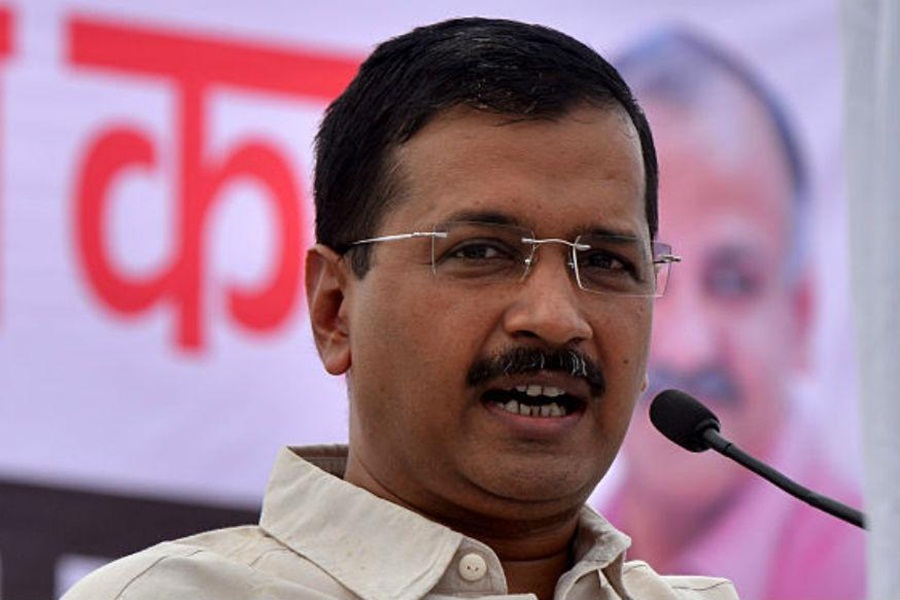Delhi chief minister Arvind Kejriwal is in the final year of his governance. He’s threatening a fast from 01 March to press for the long-pending demand for full statehood for Delhi. This is in the context of the several constraints his government has been facing in matters of governance, handling of the bureaucracy and policing in particular. Several key powers remain with the Lt Governor, who is an appointee of the Centre. This is unlike in other states where the federal system is operational in its entirety. While Kejriwal has a very valid point, wider issues of the safety and security of the national capital are matters that may demand attention.
The chief minister’s decision to take matters to a fighting level came after the Supreme Court recently ruled that the Delhi government has no power to order investigations into cases of corruption among senior bureaucrats; and this should be left to the Centre. The CM saw this as the last straw on the strained camel’s back, and asserts that this scenario must change. His view is also that if the Centre sought special powers in an area where the capital functions, this could be limited to the NDMC area, while his government is at the head of 10 districts covering the capital and its surrounding areas. Change is in the order of things. The present arrangement, effected since 1991 until when Delhi was a Union Territory, can go in for a review. This may not be the time to push matters also as the Modi government is on its way out, pending the 2019 Lok Sabha polls. This should not be the time for the outgoing political authority at the Centre to take major decisions of the kind Kejriwal is seeking. Also, in another few months’ time, the Delhi assembly polls would also take place. Some very cleverly say that Kejriwal can take the matter before the public and turn the issue into a referendum at the assembly hustings. It must be recollected that this particular issue had also been raised in the past, both by Congress and the BJP, when those parties enjoyed governing Delhi. Therefore it would be improper to push the issue as a subject matter for referendum and expect the poll verdict to act as a guide for those who would be in the seats of power in future. The Indian system of governance does not recognise referendums. While several moves had been made by the UPA government in this connection in the past, the issue could not be sorted out or solved. There is no guarantee that a return of the UPA would help solve this problem. If an alliance government comes to power after the LS polls at the Centre, there too the issue could come up for serious discussions, but with no guarantee that the demand of the CM would be accepted in an easy manner. Less said the better about the BJP. It is not known as a party willing to usher in any new idea to simplify governance. Chances are that no party that rules the Centre would create a situation in which a state government of Delhi would have independence and ability to decide on subjects that may prove inconvenient to those at the Center. Herein lies the problem.
Notable is also the fact that the five-year- period of the Modi government saw a steady deterioration of the Centre-State relations, not just with Delhi but across this country. The BJP and the Prime Minister’s perceived attempts to decimate political rivals in very ham-handed manner led to serious problems. West Bengal is constantly complaining about this. Even NDA allies like the Shiv Sena and the Telugu Desam in governance role in Maharashtra and Andhra Pradesh were cut up with the way the Centre treated those states. This, even as the BJP headed the alliance government in Maharashtra. The Telugu Desam got out of the NDA and is now part of non-BJP opposition alliance. Kejriwal too was often beating his chest in matters of Delhi government’s requirements from the Centre and alleging apathy. All things considered, the issue of full statehood for Delhi needs careful study. Security of the national capital region cannot be compromised but that alone is not everything. Delhi’s population is vast. It may be larger than many small countries around the globe. The residents of the capital city definitely deserve a democratic government with elected representative to speak on their behalf. That city cannot be ruled by an invisible authority. Nor can just municipal councillors fulfil the needs. With seven Lok Sabha seats, the city could hold political importance in times of unclear verdicts. Seen in this light, Kejriwal’s demand seems justified. The people cannot be deprived their democratic rights either by the Supreme Court or the whims and fancies of the Union Home Minister or his Secretary.
